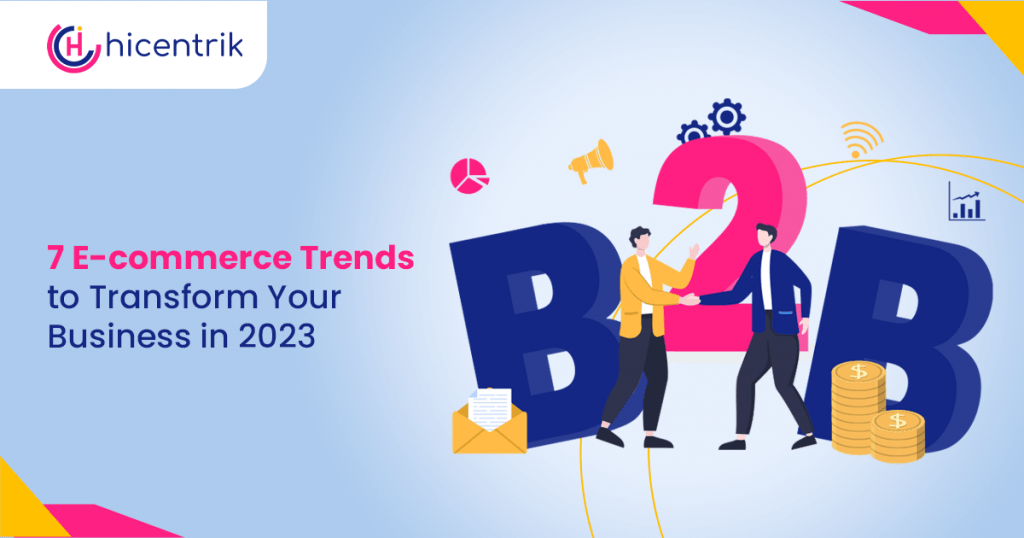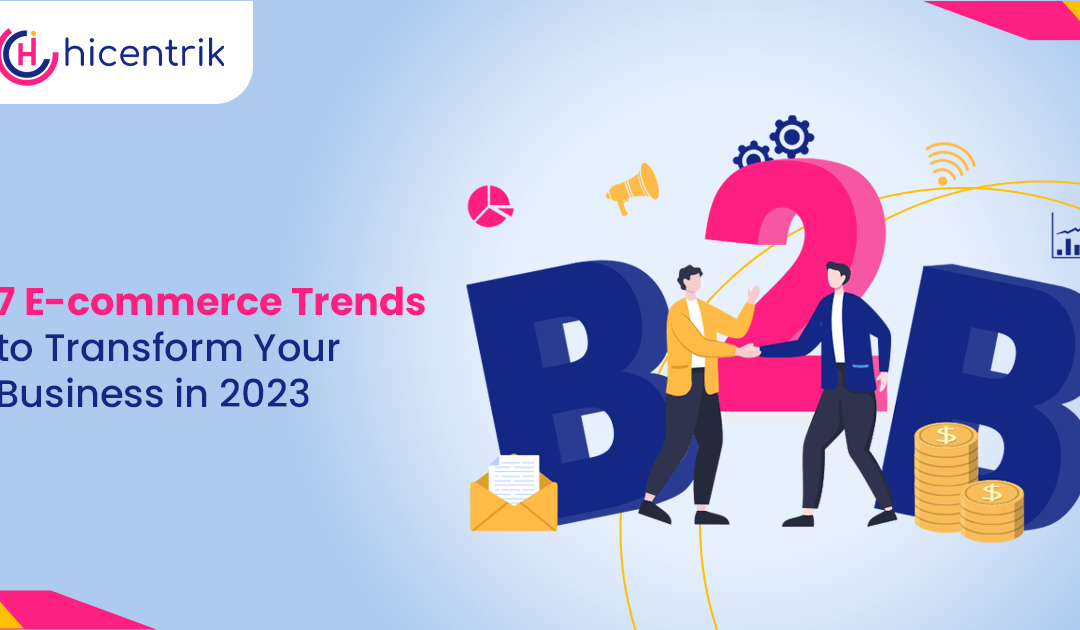
Did you know that in 2020 the global B2B eCommerce market was valued at 6.64 trillion USD? Since then, several trends have entered the industry and established a solid foothold with omnichannel marketing. 2023 is anticipated to push the envelope further in B2B eCommerce as new trends are brought about by the COVID-19 pandemic and evolving customer demands. What would the B2B eCommerce space look like in 2023? Here are the top predictions for B2B eCommerce marketing trends in 2023. Read on to understand the complexities of the B2B landscape and the intricacies of buyer expectations.
#1 The Evolving Digital Marketing Landscape
With the rise of data breaches and concerns around data privacy, customers are becoming more cautious about sharing their personal information online. In 2023, we can expect an increased emphasis on data privacy in digital marketing for e-commerce, with companies taking steps to ensure that customer data is handled securely and transparently. In addition, businesses are increasingly relying on social media trends like influencer marketing and crisp video marketing to touch base with different demographics and increase engagement.
Voice search is becoming increasingly popular, with more and more customers using devices like Amazon Echo and Google Home to search for products and services. In 2023, we can expect to see more B2B companies optimizing their content for voice search, including using natural language and long-tail keywords. Social media platforms like Facebook, Instagram, and LinkedIn are increasingly becoming essential sales channels for B2B companies. B2B enterprises can also use social media platforms to promote their products and services, including shoppable posts and social commerce features.
#2 Increased Focus on Personalization
Personalization has been a buzzword in eCommerce for years, but in 2023 we can expect to become an even more integral part of the B2B buying experience. As more B2B buyers shift their purchasing activities online, companies must find new ways to create a more personalized experience that caters to their unique needs and preferences. According to a study by Accenture, 75% of B2B buyers are likely to switch brands if the purchasing process is simple enough. Personalization can alleviate some of these pain points by providing a more tailored experience that makes it easier for buyers to find what they need and make informed purchasing decisions.
#3 Adoption of AI and Machine Learning
Gartner predicted that AI would create $2.9 trillion of business value and 6.2 billion hours of worker productivity globally by 2023. Artificial intelligence (AI) and machine learning (ML) have been making waves in the B2C eCommerce space for some time, and in 2023 we might see these technologies gain even more traction in the B2B world. AI and ML can automate various tasks, from product recommendations and personalized pricing to fraud detection and supply chain optimization.
B2B companies that embrace AI and ML will be better equipped to streamline their operations, improve their customer experience, and stay ahead of the competition.
#4 Magnified Emphasis on Mobile Optimization
Mobile optimization has been a critical focus for B2C eCommerce for years, but in 2023 we can expect to see B2B companies place an even greater emphasis on optimizing their mobile experiences. With more B2B buyers using their mobile devices to research products and make purchases, companies must ensure that their mobile sites and apps are up to par. According to a report by Forrester, 53% of B2B buyers research products on their smartphones, and 32% make purchases on their phones. B2B companies prioritizing mobile optimization will be better positioned to capture this growing market segment and provide a seamless buying experience across all devices.
#5 Enhanced Investment in Customer Data Management
As B2B eCommerce becomes more personalized and data-driven, companies must invest in robust customer data management (CDM) systems to collect, analyze, and utilize customer data. CDM systems can help companies better understand customers’ needs, preferences, and behaviors and use this information to inform their marketing, sales, and product development strategies. As per a study by Forrester, 80% of B2B firms say improving customer experience is a top priority. B2B companies that invest in CDM will be better equipped to provide a more personalized experience, improve customer retention and loyalty, and drive sales growth.
#6 Increased Adoption of Subscription and Recurring Revenue Models
Subscription and recurring revenue models have been gaining popularity in B2C eCommerce for years, and in 2023 we might witness more B2B companies adopt these models as well. Subscription models offer a variety of benefits, including predictable revenue streams, increased customer loyalty, and the ability to capture recurring revenue from existing customers. According to a report by McKinsey, the subscription economy has grown at a rate of more than 100% per year over the past decade, and this trend is set to continue. B2B companies that adopt this ecommerce marketing trends will be able to provide more flexible pricing options for their customers, increase their revenue streams, and create more predictable cash flows.
#7 Gamification and VR
Gamification uses game-like mechanics to engage customers and encourage them to take specific actions. In 2023, B2B companies will use gamification to incentivize customer behavior, including offering rewards for completing specific steps, such as leaving a product review or sharing content on social media. Also, B2B businesses might leverage VR technology to create virtual showrooms and product demonstrations for a real-time experience for their customer base.
Conclusion
It’s an exciting time for B2B eCommerce, and the companies that are willing to adapt and innovate are the ones that will thrive. These eCommerce marketing trends are just a scratch on the surface of the majestic mountain of digital marketing. Organizations are exploring the marketing sea by deploying state-of-the-art technology, and you can do it too. Just follow the compliance and regulatory requirements and work with professionals to get the most out of your marketing efforts. The opportunities are limitless in the B2B ecosystem, and consistency is the key to success.
Nikita Sharma is Chief Strategy Centrik @ hicentrik. She Strategizes, Optimizes & Revises digital activities to deliver optimum results & returns.
6 Years of Global Experience in Multi-tasking, i.e. Digital Advertising, Social Media, Ad Campaigns, Web Design & Development, Lead Generation, and Reporting.




